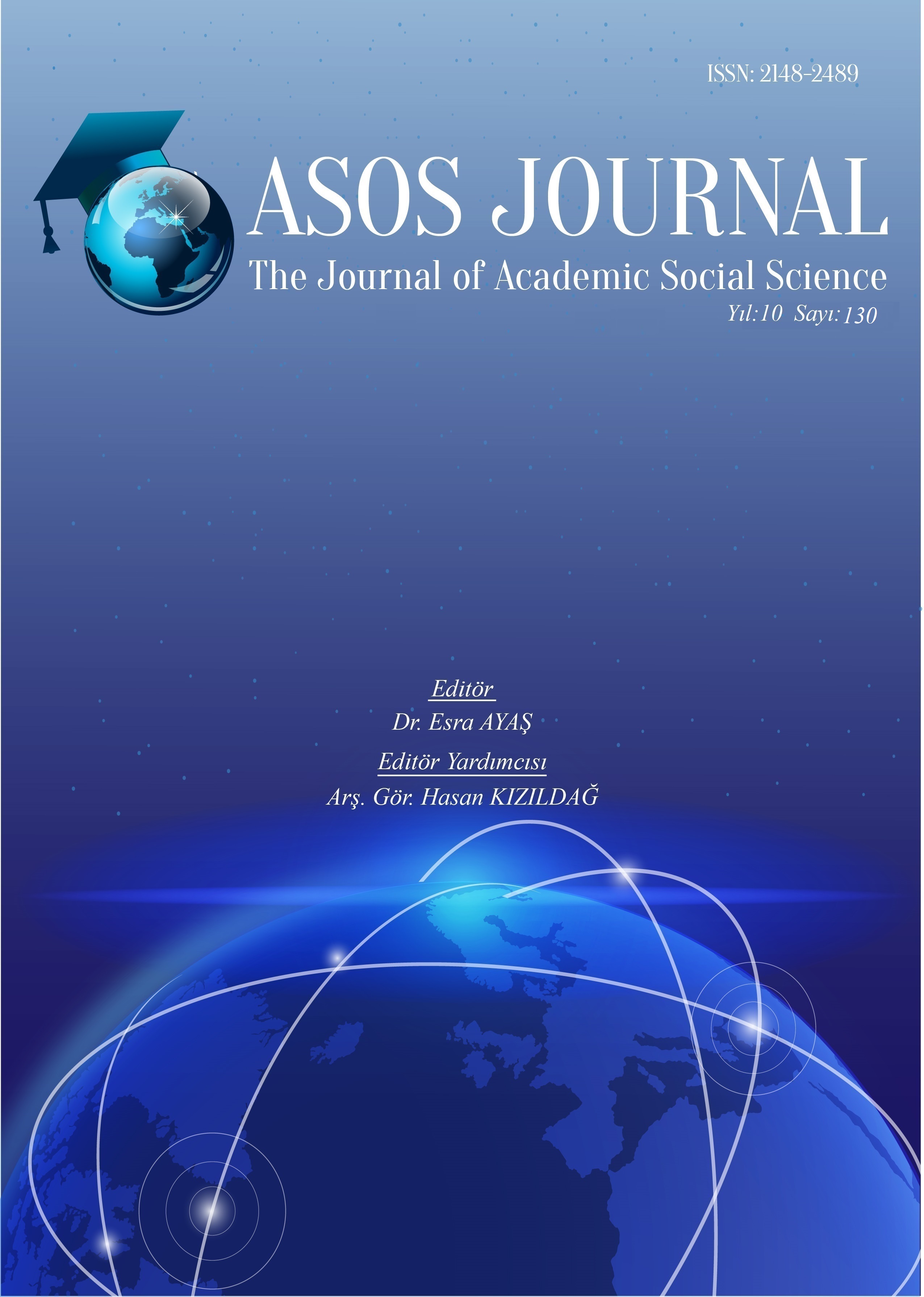1960-2000 DÖNEMİNDE MİLLİ EĞİTİM BAKANLIĞI KURUMUNUN MERKEZİLEŞME/ÂDEM-İ MERKEZİLEŞME İLKELERİ ÇERÇEVESİNDE DEĞERLENDİRİLMESİ
Author :
Abstract
Bu çalışmanın amacı Türkiye’de Milli Eğitim Teşkilatı’nın 1960-2000 dönemindeki değişimini merkezileşme ve adem-i merkezileşme ilkeleri çerçevesinde incelemektir. Çalışmada teşkilat içindeki görev ve yetki bölüşümünün değişimine bakılarak Türkiye’nin idari teşkilatının temelini oluşturan merkezileşme ve adem-i merkezileşme ilkeleri arasındaki güç dengesinin açıklanabileceği iddia edilmektedir. Araştırmada, açıklama ve değerlendirme çalışması yapılmıştır. Çalışmanın verilerini Millî Eğitim Bakanlığı Teşkilatını düzenleyen yasal mevzuat metinleri ve alan yazın taramasından elde edilen argümanlar oluşturmaktadır. Bu kapsamda ilk olarak 1960- 2000 dönemi Millî Eğitim Bakanlığı kurumunu düzenleyen temel yasal metinler taranmıştır. Millî Eğitim Bakanlığının kurumsal yapısındaki değişimler yasal düzenlemeler ve alan yazında yer alan çalışmalardan hareketle tespit edilmiştir. Tarama sonucu elde edilen bulgular, merkezileşme ve âdem-i merkezileşme ilkeleri çerçevesinde değerlendirilmiştir.
Keywords
Abstract
The main aim of the current study is to evaluate the altering structure of the Educational Ministery in 1960-2000 within the framework of centralization and decentralization principles in Turkey. It is argued that the balance of power between centralization and decentralization principles, which characterized the foundation of Turkey's administrative organization, can be explained based on the change in the division of duty and authority inside the organization. In methodology, an explanation and evaluation study was conducted. The data of the current study relies on the arguments obtained from the works in the field of writing and the basic legal codes for the Educational Ministry in the Period 1960-2000 in Turkey. Therefore, first legal regulations for the Educational Ministry organization were scanned. Then shifts in the institutional structure of the Ministry of Education have been scrutinized by both basic legal codes and the works in the writing field. The results of the scanning were evaluated by the principles of centralization and decentralization.
Keywords
- Başdoğan, H., Topukçu, H., & Uluğ, F. (1990). Türkiye’nin Eğitim Politikası. İstanbul: İstanbul Ticaret Odası İstanbul Yayın No: 1990-5
- Binbaşıoğlu, C. (2006). Türkiye’de millî eğitim bakanlığı örgütü: kuruluş ve gelişmesi (bir bilanço denemesi). Muhsin Hesapçıoğlu, Alparslan Durmuş (Ed.), Türkiye'de Eğitim Bilimleri: Bir Bilanço Denemesi içinde (s.25-54). Ankara: Nobel Yayınevi.
- Bakanlıkların Kuruluş ve Görev Esasları Hakkında 174 Sayılı Kanun Hükmünde Kararname ile 13.12.1983 Gün ve 174 Sayılı Bakanlıkların Kuruluş ve Görev Esasları Hakkında Kanun Hükmünde Kararnamenin Bazı Maddelerinin Kaldırılması ve Bazı Maddelerinin Değiştirilmesi Hakkında 202 Sayılı Kanun Hükmünde Kararnamenin Değiştirilerek Kabulü Hakkında Kanun Gerekçesi, 1984
- Eryılmaz, B. (2013). Kamu Yönetimi-Düşünceler-Yapılar-Fonksiyonlar-Politikalar. Kocaeli: Umuttepe Yayınları.
- Gözübüyük, A. Ş. (2002). Yönetim Hukuku. Ankara: Turhan Kitabevi.
- Güler, B. A. (2000). Yerel Yönetimleri Güçlendirmek mi? Adem-i Merkeziyetçilik mi?. Çağdaş Yerel Yönetimler Dergisi, 9(2), 14-29.
- Güler, B. A. (2010). Türkiyenin Yönetimi: Yapı. Ankara: İmge Yayınevi.
- Gürsel, M. (2006). Cumhuriyet döneminde eğitim yönetimi ve eğitim yönetiminin gelişimi, Muhsin Hesapçıoğlu, Alparslan Durmuş (Ed.), Türkiye'de Eğitim Bilimleri: Bir Bilanço Denemesi içinde (s.81-94). Ankara: Nobel Yayınevi.
- Keleş, R. (2009). Yerinden Yönetim ve Siyaset. istanbul: Cem Kitabevi,
- 3797 SK. “Millî Eğitim Bakanlığının Teşkilat ve Görevleri Hakkında Kanun” ResmiGazete, Sayı: 21226, 12 Mayıs 1992.
- 1739 SK. Gerekçesi Milli Eğitim Temel Kanunu, TBMM, 1972.
- Reyhan, C. (2007). Osmanlı’da İki Tarz-ı İdare. Ankara: İmge Kitabevi.
- Nalbant, A. (1997). Üniter Devlet-Bölgeselleşmeden Küreselleşmeye. İstanbul: Yapı Kredi Yayınları.
- Sorguç, B. (1982). ’den 1981’e Milli Eğitim Bakanlığı. İstanbul: Milli Eğitim Basımevi.
- Tortop, N. (1995). Yerel idarelerde büyüklük ölçütleri. Çağdaş Yerel Yönetimler Dergisi, 4(6), 21-25.
- Tortop, N., Aykaç, B., Yayman H. ve Özer, M. A. (2008). Mahalli İdareler. Ankara: Nobel Yayın Dağıtım.
- Türk, E. (2010). Türk Milli Eğitim Teşkilatı. Ankara: Milli Eğitim Basımevi.
